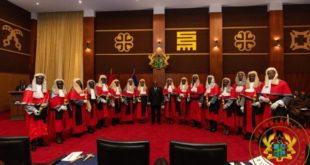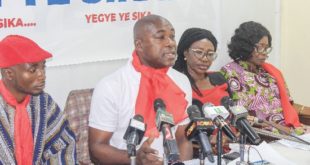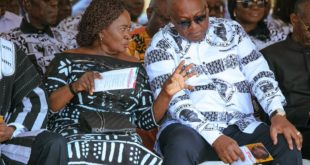The government on Sunday unveiled a broad set of initiatives to slow the rise in living expenses, particularly those for food and fuel, and to revive the flagging economic growth of the nation.
President Nana Addo Dankwa Akufo-Addo optimistically presented a slew of new steps in a televised national address to update the people on the economy. He said that these measures will slow the pace of the current economic decline.
These measures include increasing revenue collection from the existing tax revenue to GDP ratio of 13% to between 18% and 20%, reviewing the energy sector changes, capping statutory funds, putting the exclusions Act into effect, and implementing a new property rate system.
The policies of a 30% salary cut for political office holders, such as the President, Vice President, Ministers, Deputy Ministers, Metropolitan, Municipal and District Chief Executives, and appointees to State-owned Enterprises in 2023, as well as a 30% cut in discretionary spending of Ministries, Departments, and Agencies, are to be maintained.
The plan also aims to reduce total public debt as a percentage of GDP to around 55% by 2028, with the service of external debt set at no more than 18% of national income by the same year.
In relation to the imports of goods like rice, poultry, vegetable oil, toothpicks, pasta, fruit juice, bottled water, ceramic tiles, and others that can be manufactured and produced in Ghana with increased government support and that of the banking sector, it would also prioritize imports and review the management of foreign exchange reserves.
In order to strengthen the market’s resistance to external vulnerabilities, the measures also aim to sanitize the foreign exchange market by ensuring that banks and forex bureaus adhere to international best practices.
Following a cabinet retreat that was forced by skyrocketing food costs, a sharp devaluation of the Cedi, and rising fuel prices that sparked public outcry for an improved economy, those measures were finally put into place.
Following those economic shocks, the government has asked the International Monetary Fund (IMF) for a three billion dollar assistance program to help Ghana manage its balance of payments, stop the depreciation of the Cedi, and generally help stabilize the economy and return it to a solid growth trajectory.
In his speech, President Akufo-Addo said that the government was seeking to find consistent, dependable sources of reasonably priced petroleum products for the Ghanaian market.
When the plan is effective, he claimed, it will stop the rise in fuel prices and “provide relief to us all” along with a stable currency.
The President also urged Ghanaians to buy locally produced goods and services to cut down on imports, which would relieve pressure on the cedi.
“We must work to ensure that the majority of goods in our shops and market places are those we produce and grow here in Ghana. That is why we have to support our farmers and domestic industries, including those created under the 1-District-1-Factory initiative, to help reduce our dependence on imports, and allow us the opportunity to export more and more of our products, and guarantee a stable currency that will present a high level of predictability for citizens and the business community.
“We must, as a matter of urgent national security, reduce our dependence on imported goods, and enhance our self-reliance, as demanded by our overarching goal of creating a Ghana Beyond Aid,” he added.
Source: Ghanatodayonline.com/Louis Gyamerah
 Ghanatodayonline.com News, Politics, Health, Education & More
Ghanatodayonline.com News, Politics, Health, Education & More



